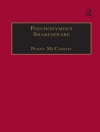Nicholas Rowe’s ’Jane Shore’ is a poignant tragedy that delves into themes of love, betrayal, and redemption set against the turbulent backdrop of 15th-century England. The play is crafted in a classic Restoration style, utilizing elevated language and rich poetic devices to convey the emotional depth of its characters. Rowe’s nuanced portrayal of Jane Shore, a historical figure and mistress to King Edward IV, highlights the human condition’s complexities and the societal constraints imposed on women during this era. By intertwining fact with dramatic imagination, Rowe situates the narrative within the broader context of English history, illuminating the intersection of personal choice and political intrigue. Nicholas Rowe (1674-1718), a pioneering figure in the Restoration drama movement, was also captivated by the historical narratives of his time. His education at Westminster School and subsequent experiences in the legal profession instilled in him a deep appreciation for both literature and history. Driven by a desire to revitalize the stage, Rowe drew from classical traditions while also seeking to reflect contemporary societal issues, evident in his profound characterization and moral inquiries. For readers and theater enthusiasts alike, ’Jane Shore’ is an essential exploration of early modern English drama, skillfully merging historical detail with empathetic narrative. Rowe’s artistry not only invites audiences into the intimate struggles of its protagonist but also encourages critical reflection on the societal mores of both the past and present. This play remains a significant work for anyone interested in the evolution of theatrical storytelling.
Om författaren
Nicholas Rowe (1674–1718) was an English dramatist, poet, and miscellaneous writer, notable for his works in the early 18th century. Educated at Westminster School and subsequently at Middle Temple, Rowe began his career as a lawyer. However, his passion for literature soon overtook his legal ambitions, leading him to become one of the significant literary figures of his time. Rowe’s literary style was marked by a blend of neoclassical elements and an early sentimentalist touch, which underscored the emotional and moral dimensions of his characters. Perhaps best known for his play ’The Tragedy of Jane Shore’ (1714), he vividly portrayed the pathos of the historical figure Jane Shore, the mistress of King Edward IV, empathetically crafting her downfall and redemption with a keen eye for the societal and personal consequences of her choices. Rowe’s depiction of Jane Shore situates her as a tragic heroine caught in the throes of power dynamics, human weakness, and redemption. Through his theatrical works, Rowe not only engaged audiences with dramatic narratives but also contributed to the evolution of the English literary canon. As a testament to his influence, he was appointed Poet Laureate in 1715, succeeding Nahum Tate. Additionally, Rowe is remembered for his role as the editor of the first critical edition of Shakespeare’s works which included an attempt to ascribe dates to the undated plays and providing an early form of literary criticism. Nicholas Rowe’s works continue to be studied for their historical significance and their representation of 18th-century English drama and sentiment.












